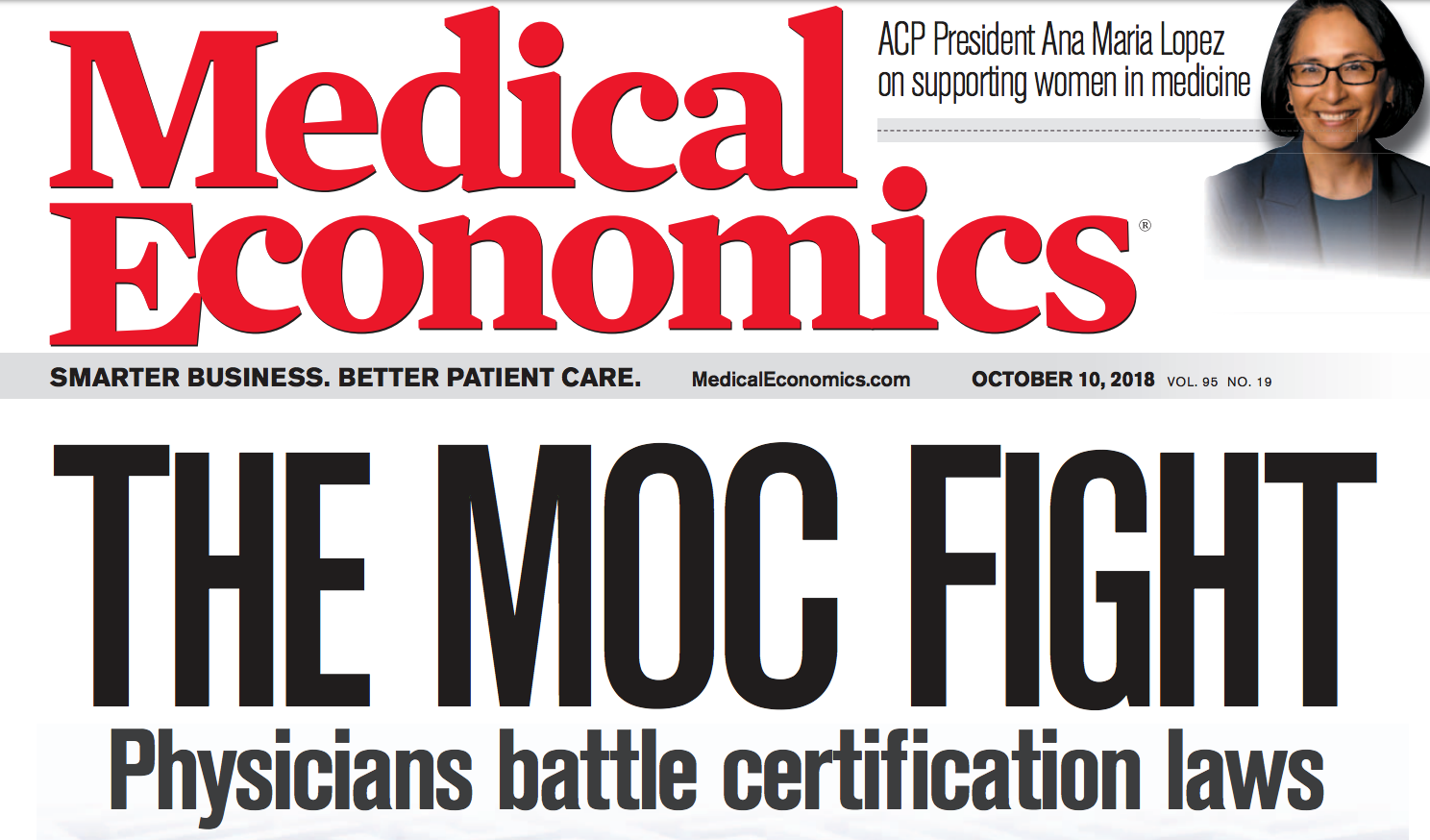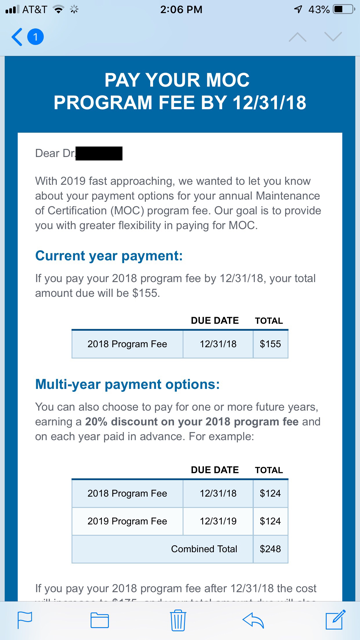Congress was sold the same thing in 2013:
"ABMS MOC® is a system of specialty-specific assessment and professional development activities that require medical specialists to reflect on their practice performance, identify gaps, and adopt new practices to improve care."It seems physicians and the public were purposefully mislead. MOC® was always a stick that is now being introduced as a carrot to direct physician behavior.
Yesterday, Blue Cross and Blue Shield of Michigan announced (via their friends at the Michigan State Medical Society), that lowly family practice physicians, internists, and pediatricians that are "designated" patient centered medical home physicians won't have to participate in MOC® after all:
"Effective Jan. 1, 2019, the board certification status of family medicine, internal medicine and pediatric practitioners will be reviewed annually. If their board certification status has lapsed and they are a designated patient centered medical home physician, Blue Cross will grant an exception and allow the practitioner to remain in their Blue Cross and BCN managed care networks. This exception does not apply to new practitioner enrollments. Blue Cross and BCN will continue to require all providers to have board certification upon initial enrollment for affiliation."Meanwhile, the ABMS "Vision Commission" tap dances and distracts by seeking more public comment 2019 timeline magically appears, just as the transition to Medicare's next unproven "value-based" physician pay model is implemented.
Patient care value?
Now you see it, soon you won't.
-Wes


